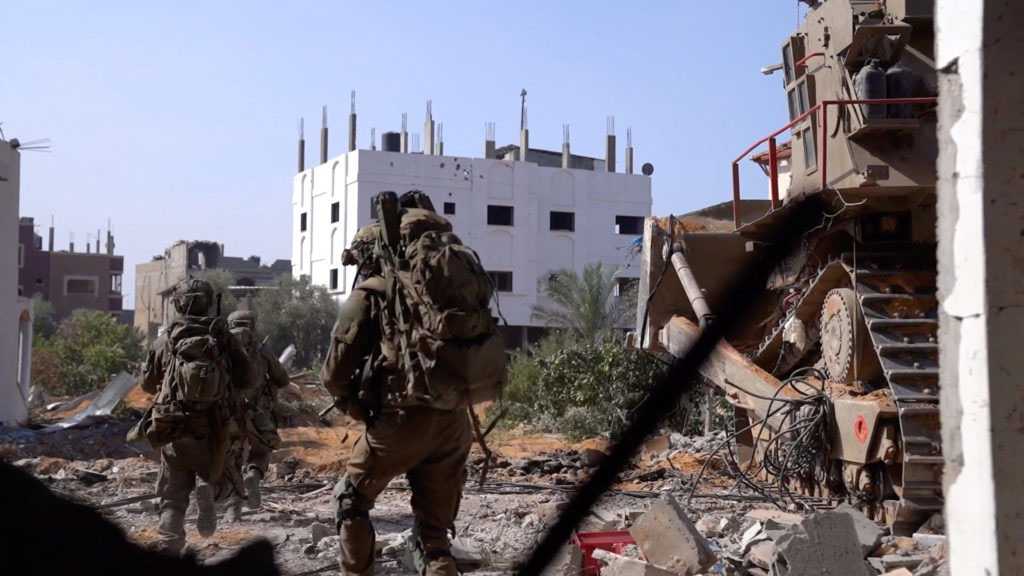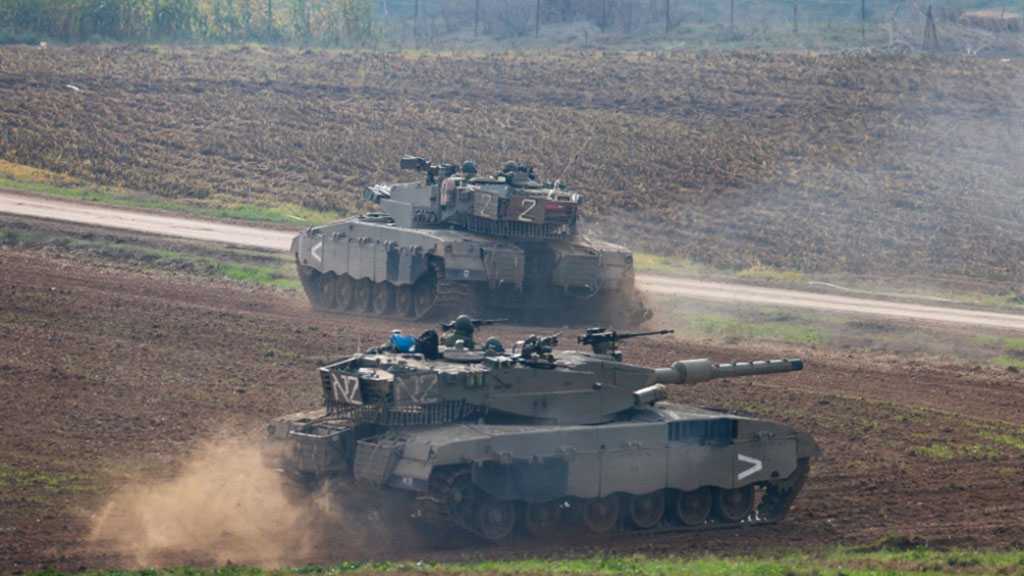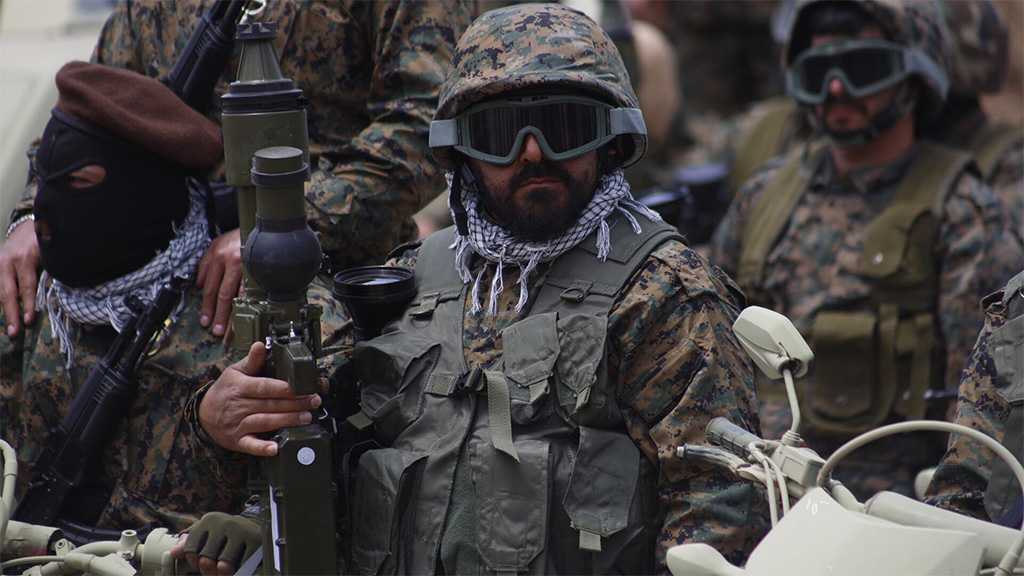
When the Trader Carries a Sword
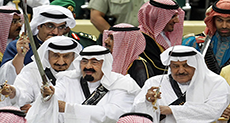
Amer Mohsen
When Ibn Saud decided, in the late 20s of the last century, to dissolve the "Brothers Army" and end the armed Wahhabi movement - by assassinating and arresting its leaders- he was making an conscious decision in parallel with the military expansion phase, bearing in mind the construction of the state from within.
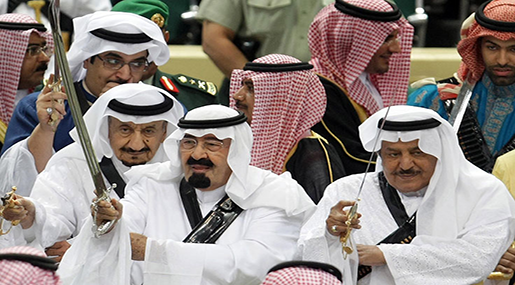
When King Salman got rid of the armed wing in the Wahhabi movement - which was composed of "immigrant" ideologues who are always ready to fight everywhere - he was aware that he was willingly abandoning the possibility of direct interference in the region, or the continuity of outside invasions, or even self-defense against any major power. It was then relied upon British protection [later American] for the "defensive policy", while the army and the armed forces were directed inwardly. And those who studied the structure of the modern Saudi "army", an effective element among several other armies that balance each other, know that it is designed to protect the regime and the ruling family, and prevent coups, rather than forming an effective fighting unit.
Since the time of the "Brothers", their white head-dress and their invasions that used to terrify Iraq and al-Sham, many things changed in Saudi Arabia: the country became a kingdom, oil appeared, the Najd elite's authority became deep-rooted, while the old trade classes in al-Hejaz and other places weakened, people of the peninsula abandoned the desert life and weapons, and became the most urban societies in the region -and most disciplined and obedient to their rulers. However, since the 50s, the tools of the Saudi regime abroad were limited to financial power and buying off allies, as well as proxy wars or wars under a western power, in which the sons of Saud performed well, making their rule continue and exhausting their rivals. Yet none of the Saudi kings had any illusions regarding the ability of their armies, or any ambitions to score military achievements and foreign campaigns, until one day, and the result now is tragic and funny at the same time.
One of the educated spokesman of the Saudi regime, and one of its icons in the West, is Nawwaf Obeid, and one of the people who theorise in relation to this interventionist strategy, must have lately read the Schlieffen Plan [that was put by the German leadership on the possibility of war against France and Russia at once], in which he started using every single occasion to talk about the Saudi military policy, both in Arabic and English. We don't know how wise is it to be inspired by the German military strategy during the two world wars as an example, but we know that the Schlieffen Plan was based on ousting France from the war as soon as possible, then mobilizing German resources to be devoted to the Russian front [that was considered the most difficult, especially with regards to the country's geographic and demographic size, as well as its ability to get engaged in a long-term battle]. So where is "France" and "Russia" in such a scenario? Is the "lighting" Saudi war the same one that is taking place in Yemen since more than one year? Or do they believe that the campaign of their troops in Syria and Iraq will be quick and easy?
On the Lebanese level, Obeid had a simple theory: to eradicate "Hizbullah" [because the Saudi army is stronger and more powerful than the "Israeli" army]. We don't know whether it is a "camouflage" or an attempt to deviate the attention from the defeats in other places, however Riyadh has decided, apparently, to leave the struggles it ignited in Syria and Iraq, and forget the war that reached its lands in ‘Asir and Najran, then focus on gaining Lebanon; the country that is less important, and whose people know before any other person that it is uncontrollable, such that the Lebanese factions themselves have given up on unilateral control or domination according to a particular program [in which it is enough for a political or sectarian power to escalate so that all other sects would unite against it, and prevent it from practicing its authority; and once a "main" sect decides to boycott the regime, then its work would freeze immediately.]
Yet, before Lebanon and the Saudi military plans to occupy the Orient and Iran, the war on Yemen - the first Saudi "foreign war" since the 30s - would be a beneficial model to understand the Saudi performance and its abilities in war, it is also a tangible, real situation that is more honest than media slogans and threatening articles. After a year of war, and 50 thousand strikes, what did the Saudi project in Yemen reach? The most important part of the documentary aired by the BBC lately on Taiz was not documenting al-Qaeda's engagement in fighting along with the "alliance" and the "resistance", this has been known ages ago; yet the real "scandal" was in the image reported by the Saudi camp's camera: which showed a gathering of Sudanese soldiers in a camp, beside al-Qaeda fighters, and in another place members of the Reform Party, in which they were all commanded and lectured by Gulf officers.
In order to understand the nature of Saudi Arabia's function and war on Yemen, a general exposition of the fronts would help. Besides Ta'az, where the "coalition" fighters and the foreign mercenaries, al-Qaeda and the Reform Party are mixed together, we find that in the north west, on the Midi port along the Saudi borders, forces loyal to the "coalition" are led by Major General Ali Mohsen, [the half-brother of Ali Abdullah Saleh, and one of the most distinguished figures of the previous regime who was lately appointed Deputy Chief of the Armed Forces,] and in Ma'rib Hashem al-Ahmar, the descendant of the family that historically represents Saudi interests in the country. However, in Bab al-Mandeb and Dhubab, the Emirati forces are supported by foreign members of private security companies and units belonging to Hadi, calling themselves the "National Army", among which there is a brigade called the "Zayed Brigade" [you can imagine how humiliating this is!]. As for the south, al-Qaeda took control of Zanjabar, ‘Abyan's capital, and the capital of Lahej, along with Hadramaut and al-Mukalla, thus dominating most of the "southern Yemen" and its coast, waiting simply for the Gulf forces to leave so it can control ‘Aden.
The problem of the Saudis is that their historical points of strength allowed them to control the media, buy the elite, ignite wars and control them, having nothing to do with the direct war. Their problem is that their soldiers and proxies, from the Saudi borders to Lebanon, Syria and Yemen, are all under Che Guevara's equation of 1958 during the Cuban revolution, which provides: "The enemy's soldier in front of us...is the smallest partner of the tyrant. He is the man who receives the last piece of the crumbs left by a long line of beneficiaries, starting and ending with Wall Street. He is ready to protect his privileges, but he is only ready to protect them as much as they are important to him: his salary, his retirement would deserve some suffering and risk-taking, but they don't deserve, in any way, to sacrifice life for. When his life becomes the price to protect such gains, then it would be better to give up on them."
Source: Al-Akhbar Newspaper, Translated and Edited by website team
